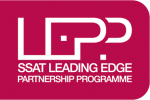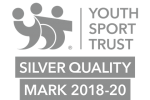GCSE Food Preparation and Nutrition
The Course
Your DT Food lessons will have prepared you well, but there are many aspects to this interesting new course focussing on healthy eating, food science and practical cooking skills.
There is a brand new textbook to support the course and students will be cooking every week. The practical lessons will teach you a wide range of new skills as the coursework in Year 11 has a high proportion of marks for your practical cooking skills.
The six main areas are:
� Food Commodities: For example; research about cereals, fruit and vegetables, sugars, dairy, fats , meat/fish and vegetarian alternatives. The course will look at their value in the diet, their working characteristics, experiments to understand changes occurring during cooking and also current recommended guidelines for a healthy diet.
� Principles of Nutrition: The role of the main nutrients in the diet, their sources, function and deficiency diseases. for example the importance of iron in the diet and the foods that supply it.
� Diet and Good Health: Looking at how food choice can have a positive or negative impact on health.
� The Science of Food: Finding out how different ingredients work and how we use them. For example how versatile eggs can be and how their properties are used to make a lemon meringue pie.
� Where food comes from: Looking at the global food market and the impact of cultures and transport on our food choice. You could investigate food miles and seasonal foods.
� Cooking and Food Preparation: lots of cooking and free choice about recipes. You will be encouraged to develop high order preparation skills such as makes a variety of sauces as well as using a wide range of equipment and cooking techniques.
Assessment
� Written Examination at the end of Year 11:
Principles of Food Preparation and Nutrition.
A 1 hour 45 minute written examination worth 50% of the final qualification.
� Coursework A:
Food science practical experiment with written report.
Set in September of Year 11, this could be a variety of tasks set by the exam board for example: Investigate the best type of flour to use for bread making. Recommended time allowed 8 hours.
Completed in school and worth 15% of the final qualification.
For further information please speak to Mrs E Bennett.

















